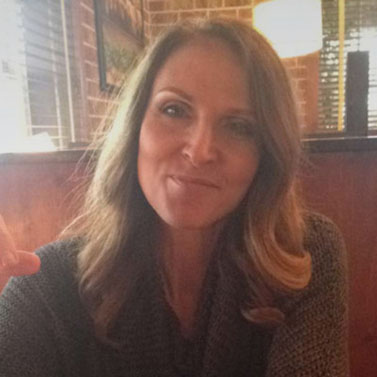It is never easy to place a loved one in a nursing home facility, but when we do, we want to know for sure that they are being cared for properly. When you see something that doesn’t feel right while visiting your relative in care, take note and say something. You are your loved one’s best advocate, and they are counting on you to protect them. According to some elder health professionals and those familiar with eldercare law, here are some things you can look for when you suspect neglect:

Jordan Peagler
Jordan Peagler, Owner and Partner of MKP Law Group, LLP is a personal injury litigation law firm focused on representing injury victims.
Understand what negligence is
The first thing is to understand what negligence is when it comes to nursing home care. Negligence is not direct abuse or harm. Instead, nursing home negligence includes failure to supervise properly, neglect in performing the full duty of care or caregiving needs for the elderly at the nursing home facility to ensure their health and safety.
What are the Signs of Nursing Home Negligence?
Signs of abuse include:
- Physical injuries (bruises, bedsores, burns, scratches, etc.)
- Deterioration in health (not providing sufficient food or hydration)
- Changes in body odor
- Dirty room
- Unwashed clothes or bedding
- Lack of social contact or withdrawn behaviors
- Unusual sleeping patterns or problems with sleeping
Often the first indication of these other signs is a change in personality or any kind of emotional shift.
How can I investigate if I suspect negligence?
Verify that the nursing home has the correct ratio of patients to staff. This is often the first indication of neglect.
Also, determine the type of training the staff receives and find out if it is properly administered. It’s also a good idea to understand the nursing home’s hiring procedures and whether or not they are conducting background checks on employees.
These can be strong indications of nursing homes cutting corners.
Other signs include:
- Lack of necessary medication or medical devices
- Lack of social activities for residents
- Dirty bedding or clothing
- Dirty rooms
- Lack of social and emotional support services
Visit often on an irregular schedule to see how care is being administered
Neglect, unlike abuse, often will have no obvious outward sign but it is those subtle issues that can accumulate into a full-blown neglectful environment. It is important that family members or friends visit often but on an irregular schedule to see how care is being administered during different shifts and days.
Loved ones should use their eyes, ears, and nose when trying to determine if neglect is present. Look around, are there signs of uncleanliness? Food trays left for hours and dirty clothes can be signs of an issue if it is a regular occurrence. What can you smell? Soiled sheets and bedside toilets left uncleaned can not only be rough on the nose they can cause serious medical issues and be a sign that the resident is not receiving adequate care. What are you being told? Good communication between the resident and loved ones can really help to bring neglectful situations to light. If a resident is non-communicative then establishing a relationship with a neighbor resident can often help keep an extra set of eyes on the nursing staff and any issues that come up. When only one of these issues arises it can be a sign that neglect is present. If two or more of these issues arise regularly then neglect is likely and should be investigated immediately.
If senior neglect is present in a nursing facility the best way to get help is to reach out to the Area Agency on Aging. The Area Agency on Aging is available throughout the US and is administered by United Way. The agency includes a wide range of senior services including the Long-Term Care Ombudsman Program. This Ombudsman program serves as an advocacy system for those senior residents that reside within a long-term care facility. An Ombudsman is an advocate that works with the resident and family member when concerns arise due to neglect, abuse, or a resident’s rights. If an issue is found, the Ombudsman will seek resolution. If no issue is found then the senior and the family members can rest assured that proper care is being provided.

Cindy Moore
Cindy Moore is the co-founder and managing member of Senioridy.

Katie Ziskind
Katie Ziskind is a licensed marriage, and family therapist and the owner of Wisdom Within Counseling in Niantic, Connecticut. Find her at Wisdomwithinct.com
Checking in on the caregiver staff
The best way to understand if there’s nursing home negligence happening is by visiting your relatives that live in a nursing home and helping them do daily tasks like showering. When you help an elderly person that lives in a nursing home shower, you’ll get to see their skin, and any bruises, cuts, and anything that may be related to neglect/abuse. Going into the nursing home, you’ll get to hear which workers might be more rude, disrespectful, or who are taking some of their anger out on the residents.
Elderly are often put into places like that because they are helpless physically and need care, but sometimes that means they become a victim of neglect or abuse more easily. Elder abuse is very common, unfortunately, but it can be prevented by keeping a close eye on your relatives and checking in on the caregiver staff.
If you feel there is nursing home negligence, contact your department of health or your department of senior services through your state to report the abuse/neglect. If they deem the report as having enough evidence, they may open an investigation. This is a similar process to if you think a child is being abused or neglected. If there is evidence, an investigation will be opened.
Can be both conspicuous and hidden
Signs of neglect (and even elder abuse) from nursing homes can be both conspicuous and hidden. Senior neglect can take the form of physical, emotional, financial, and even sexual abuse.
Family caregivers should immediately question a senior’s mysteriously broken bones or other injuries. Bed sores may indicate a senior has not been moved. Flinching may be a sign of pain or fear. Improper/unexpected responses to medication may mean the senior is being over or under medicated. Weight loss may indicate a senior is not eating properly. Social withdrawal may suggest the senior is being ignored and/or humiliated. Unsanitary living conditions may include limited bathing and poor room cleaning practices.
Family caregivers suspecting nursing home neglect should contact their long-term care ombudsman. The ombudsman serves as an advocate for seniors and will investigate.

Rick Lauber
As a former co-caregiver, Rick Lauber helped and supported his own aging parents. Lauber has written two books, Caregiver’s Guide for Canadians and The Successful Caregiver’s Guide. This second book is for American readers. Find him at Rick Lauber.

Jacob Reno
Jacob Reno, a 23-year-old who loves to talk about seniors, senior living and senior health. Find him at Seniorswhomove.com
Know what the state standards of care are
The signs that you have a legitimate negligence lawsuit or complaint are that the situation violates state laws and that it can be demonstrated the violation led to the injury or death of the resident. Not many care facilities or employees are negligent, but they are required to follow the law and when they don’t, the wrongfully injured person or their family is entitled to monetary compensation. In order to determine if one’s rights have been violated, one needs to know what the state standards of care are and what the local facility’s duty of care is.
What are the signs of Nursing Home Negligence?
There are two ways to identify possible negligence in a nursing home or assisted living facility. The first is physical indicators such as bedsores (pressure ulcers), incidents of falling or fractures, unexplained bruises or marks, malnutrition, or poor hygiene (soiled bedding). The other is by evaluating suspicious behaviors such as signs of emotional withdrawal in your loved one or staff refusing to allow visitors, delaying visits, or not allowing the residents to be alone with a visitor.
How can I investigate if I suspect negligence?
If you suspect that there is abuse, you should consult with an attorney who is experienced in nursing home abuse. You can also file a complaint with your local Department of Health immediately and ask them to investigate. If the facility takes Medicare or Medicaid, you can file a complaint with Centers for Medicare and Medicaid Services. It is critical that you take action right away because your loved one needs an advocate ensuring they are protected from abuse or neglect.

Sean C. Domnick
Sean C. Domnick is Board Certified Civil Trial Lawyer and shareholder in the law firm of Domnick Cunningham & Whalen.
This is a crowdsourced article. Contributors' statements do not necessarily reflect the opinion of this website, other people, businesses, or other contributors.
